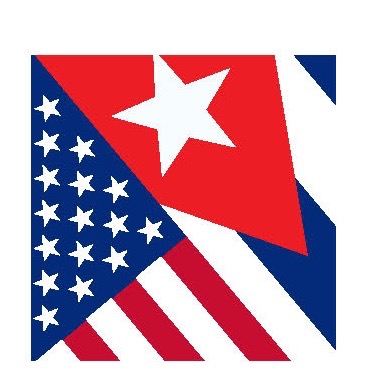Havana Jazz Festival and Beyond
Jazz group tour
Day 1:
Thurs Jan 18: Arrive Havana. Leave airport directly for Sierra del Rosario park (51 Km) 1 night. Stop on the way to visit Reynaldo Barbón, geologist and curator of the open air museum of the Angerona coffee plantation ruins.
Check in to the iconic Moka Hotel. Dinner at Romero vegetarian restaurant. Zip line if you like. Visit local artists especially Henry Alomá, an accomplished artist who specializes in humor. Learn about the eco-community.
Day 2: Fri. Jan 19:
Check out early and visit orchid garden in Soroa. Walk to Falls. Lunch at Odalys private restaurant. Then drive (123 km) to Viñales, UNESCO World Heritage Site and a national natural monument with its unique karstic formations called mogotes. Check into B&Bs. Dinner with families. Meet Nils Navarro, author of The Endemic Birds of Cuba, and editor of Checklist of the Birds of Cuba, an annual scientific publication. Spend time with his family to learn about life in this tobacco growing region, devastated by recent storms and hurricanes.
Day 3: Sat. Jan. 20:
Morning breakfast w/families. Visit tobacco farms and mogotes. Lunch on a small private farm. Dinner in town or at your B&B.
Day 4: Sun. Jan 21:
Check out and drive (366 km) to Playa Giron (Bay of Pigs) and meet your families at Playa Larga. Dinner at Tiki with our host, Rosendo Martinez, retired National Park specialist, who will talk about the extensive work Cuba is doing to preserve the environment and about everyday life in a small coastal town.
Day 5: Mon. Jan 22:
Visit Enigma de las Rocas, a unique geologic formaton (bring bathing suits), and Playa Giron museum to learn about the US-backed invasion at the Bay of Pigs. On to Bermejas Finca Agro-ecologica Los Cocos where Eddy and his wife will explain their intensive, organic medicinal plant production for the local pharmacies and provide us with a delicious homemade lunch. Drive to Las Salinas, a beautiful part of the swamp, for sunset. Dinner at home of one of the B&Bs or a local restaurant.
Day 6: Tues. Jan 23:
check out and drive (200 km) to UNESCO World Heritage site, Trinidad (stop in Cienfuegos for lunch and to check out the eclectic architecture). Check in to B&Bs. Evening walk around town for dinner at close-by restaurant with music!
Day 7: Wed. Jan 24:
Trinidad. Breakfast with families. Walking tour of the city with historian and architect, Osmara Tamayo Bazan. Light lunch and afternoon drive through the Valle de los Ingenios and visit to Manaca Iznaga Sugar Plantation ruins. Dinner in town.
Day 8: Thurs. Jan 25:
Day trip to Topes de Collantes. Lunch in Topes. We will be hiking and visiting waterfalls and interacting with the local people who live in this lovely setting and its welcome microclimate. Bring windbreaker and bathing suits. Return to town in time to freshen up, have dinner and seek out some musical offerings.
Day 9: Fri. Jan. 26:
Check out. Head for Havana (315 km). Check into digs on Calle Cuba 60. Four nights. Schedule will be worked around the Jazz Festival offerings.
Day 10: Sat. Jan. 27:
Day 11: Sun. Jan. 28:
Day 12: Mon. Jan. 29:
Day 13: Tues. Jan. 30:
Depart for USA.
These are things we will weave into and around events: Old Havana walking tour with José Marti scholar, Javier Ruben Busquet, National Museum of Cuban Art; visit archaeological sites with Marcus Antonio Acosta with a focus on the archaeology of Habana and exchange programs with Italy and Canada; excursion to Hemmingway’s home, Finca Vigia and Ajiaco restaurant for a cooking lesson; National Botanical Garden; Fábrica de Arte (evening and probably part of the Jazz Festival); Walk from Congress building down the Prado to the Malecón; or Vice versa. Visit outstanding artists’ studios: Kamil Bullaudy especially; Visit Casa de Africa; visit to University of Havana and meet with professors there, also ISA (Instituto Superior de Arte) (if possible); cocktails with friends at Hotel Nacional. Talks and meetings with: small, independent handcraft cooperative, leading intellectuals, publishers, a priest, members of Santeria religion to discuss and learn about topics of interest such as: the economy, social issues, women’s issues, racism, culture, education, gastronomy, religion.
